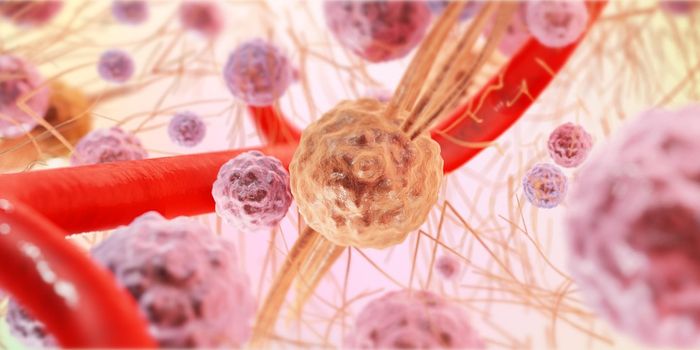Could the flu vaccine shrink cancer tumors?
If you’ve been to the doctor recently, you’ve probably been asked if you want a flu shot this year. The flu vaccine is popular because it reduces the risk of getting the flu and the intensity of flu symptoms if you get it. But new research shows that the flu vaccine might be helpful in another way, too: shrinking cancer tumors and enhancing cancer treatments.
According to the new research, which was published recently in the journal PNAS from a team of investigators from the Rush University Medical Center in Chicago, IL, injecting the flu vaccine into mice models has resulted in reduced cancer tumors and more effective immunotherapy.
The idea behind this is that the flu vaccine turns tumors from cold to hot. Ever since immunotherapy has become a more popular cancer treatment, scientists have been putting a lot more focus on hot and cold tumors because immunotherapy needs a hot microenvironment to function well. Cold and hot tumors refer to a tumor’s microenvironment; cold tumors contain immunosuppressant cells while hot tumors contain immune cells.
The researchers found that injecting the flu vaccine into mice with melanoma and metastatic triple-negative breast cancer tumors caused the tumors to grow slower or even shrink. Additionally, they found that if a tumor was injected with the flu vaccine, not only would that specific tumor be affected, but other tumors in different parts of the body would also grow slower.
The injection of the flu vaccine triggers this result by raising the concentration of dendritic cells in the tumors, which in turn elicit an immune response and an increase in CD8+ T cells. The presence of these immune cells converts the tumors from cold to hot, enabling them to identify and kill cancer cells.
"Our successes with a flu vaccine that we created made us wonder if seasonal flu vaccines that are already [Food and Drug Administration]-approved could be repurposed as treatments for cancer," senior study author Dr. Andrew Zloza commented. "Since these have been used in millions of people and have already been shown to be safe, we thought using flu shots to treat cancer could be brought to patients quickly."
He adds that they have high hopes to continue their research into human trials. "Since humans and mice are about 95% genetically identical, the hope is that this approach will work in patients. The next step planned is to conduct clinical trials to test various factors.”
Sources: PNAS, Medical News Today









